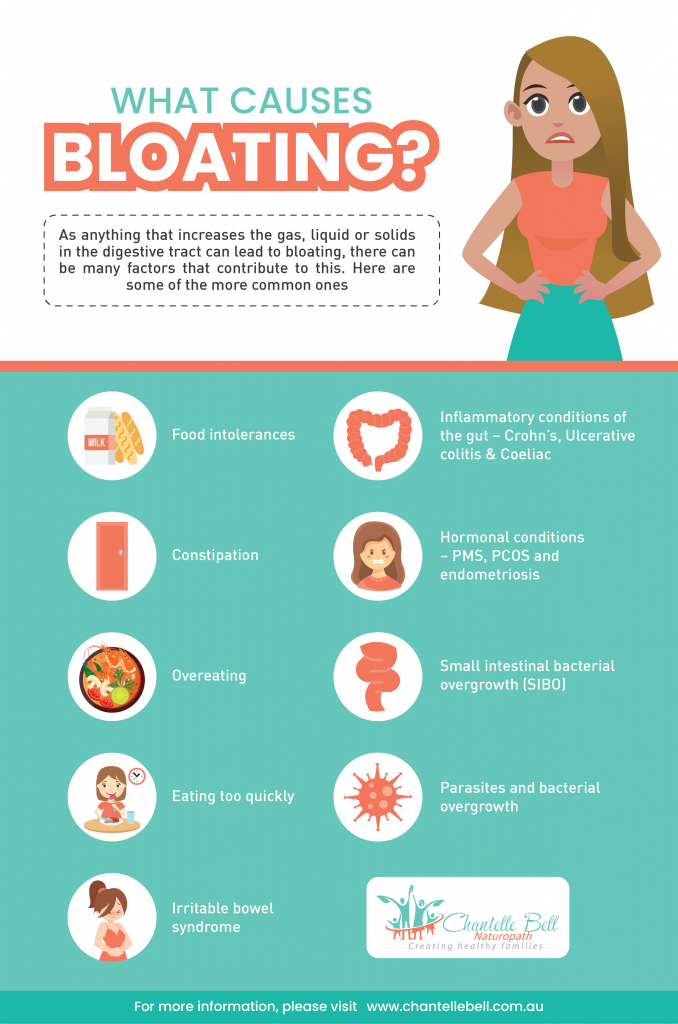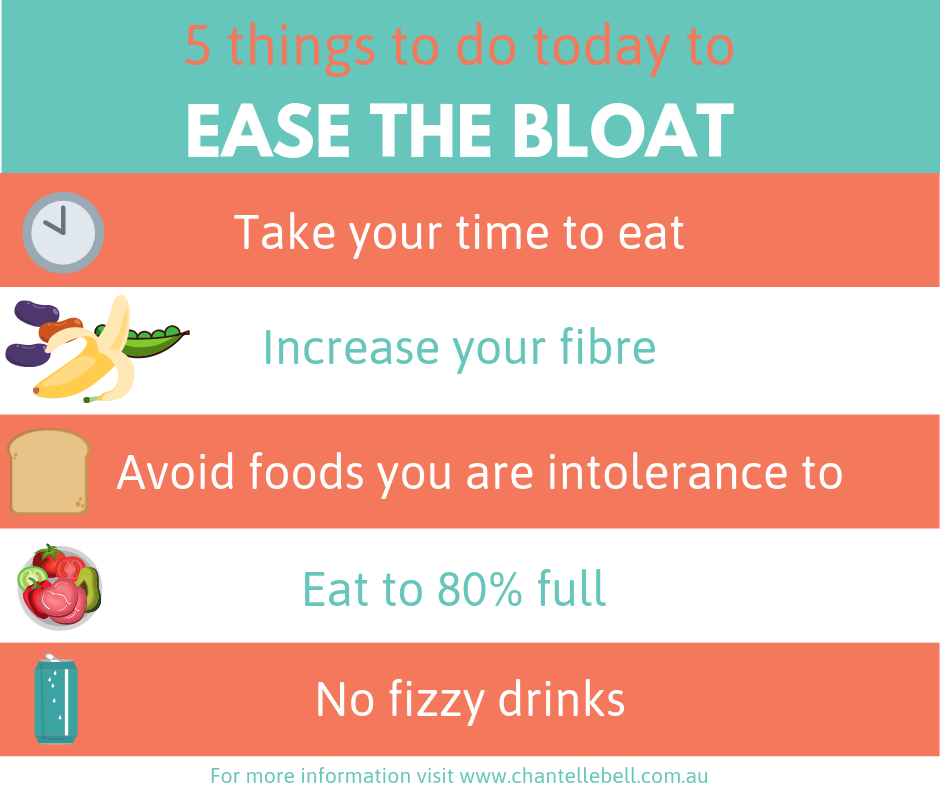Many people experience bloating on a regular basis. But what you may not know is that there are many different factors that can make you feel bloated. By understanding what causes this, you can address the root cause, and reduce that uncomfortable bloat naturally.
What is bloating?
Bloating is the feeling of a swollen belly or abdomen, usually after eating. Women often explain it to me ‘like feeling 6 months pregnant!’ It is usually because of excess gas being produced in the digestive system. However, it can also be caused by excess liquid or solids in the digestive tract, or even by reduced movement of the digestive muscles.
When you’re bloated, you feel uncomfortable and ‘stuffed’. Your stomach will look bigger than usual. You may even experience pain with severe bloating. If you’re bloated, you might feel some relief if you burp or pass wind.
How quickly the bloating occurs can depend on the cause. Some people will feel bloated immediately after a meal. Others may not experience the bloating until 30, 60 or even later and get worse throughout the day.
Bloating is different to water retention, which can occur due to hormonal fluctuations or an imbalance of fluid and electrolytes.
What are the causes?
As anything that increases the gas, liquid or solid in the digestive tract can lead to this discomfort, there can be many factors that cause this. But some of the more common ones include:
- Food intolerances
- Small intestinal bacterial overgrowth, or SIBO
- Constipation
- Overeating at the previous meal
- Chronic conditions that affect the gut, including Crohn’s and Coeliac disease
- Hormonal conditions that can indirectly affect the gut, including PMS, PCOS and endometriosis
For some people, there isn’t even a significantly increased volume in the abdomen – they are just more sensitive to the sensation of it being fuller than usual.

How can I fix my bloating?
It really does depend on the cause. The best way to fix it long-term is to identify the cause and address it directly. But in the meantime, here are a few little tweaks that can ease the bloat.

Eat slowly & mindfully
Sometimes, bloating is just about how quickly or how much we eat at a meal. So the easiest way to prevent bloating is to eat your meals slowly and mindfully.
The more that you chew your food, the easier it is for your body to digest it. When you eat slowly, you are less likely to gulp air that can contribute to bloating after a meal.
Eating slowly will also reduce the likelihood of overeating, as your stomach has time to register how full it feels.
Not sure how slowly to eat?
Start by putting your fork or spoon down after every mouthful. Chew for at least 10-15 seconds, swallow, and then pick your fork or spoon back up.
Include resistant starch
If there are any gut-related causes of your bloating such as constipation, imbalances in the gut flora or SIBO, resistant starch may help.
Resistant starch is a particular type of prebiotic fibre that feeds good bacteria. It may also help flush out the bad bacteria, returning your gut to balance. And like any type of fibre, it can help keep you more regular.
Resistant starch is found in foods such as oats, seeds, green bananas and cooked and cooled potatoes and rice.
If you do introduce resistant starch, you may have increased bloating and gas for the first few days. But after that, it should subside. If you continue to experience discomfort, seek the advice of your healthcare practitioner.
Recently I contributed to an article in Good Health Magazine about the benefits of fibre and resistant starch – read it HERE
Avoid foods you are intolerant to
Consuming foods that you are intolerant to can cause a reaction in the digestive tract, which can lead to bloating and feeling uncomfortable. One of the most common symptoms of a food intolerance is bloating and increased gas production in the gut.
The most common food intolerances that can cause bloating include:
- – Dairy/lactose intolerance
- – Wheat/gluten intolerance
- – Fructose intolerance or malabsorption
- – FODMAP intolerance, which includes lactose and fructose
Use my easy 7 step guide on How to Identify Food Intolerances and Overcome Them to see if it’s contributing to your bloating.
Skip the carbonated drinks
Consuming carbonated drinks such as soft drink and mineral water can increase bloating. These drinks introduce more gas into the digestive system, which can cause bloating.
Seek professional advice
If you experience bloating on a regular basis and you can’t pinpoint the cause, I’m here to help. With over 12 years experience, I can help you identify the cause of your bloating and reduce it naturally.


